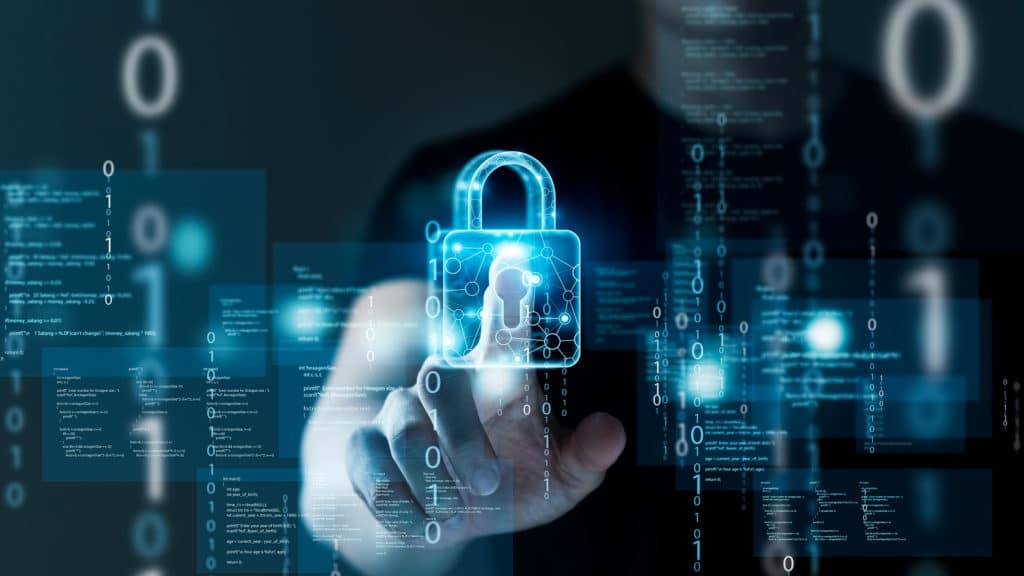
2021 was a record year for cyber attacks, with a cyber attack occurring every 11 seconds per day of the year. Some of the highest-profile data breaches include the Kaseya ransomware attack and Colonial Pipeline cyber attack.
While it tended to be large organizations that made the headlines, small and medium-sized businesses suffered too. Research indicates that 42% of small businesses experienced a cyberattack in the last year.
With a new year begun, cybercrime shows no signs of slowing down. As we all know, the best offense is a good defense, so read on for our take on the most significant cybersecurity trends this year – and what they mean for your business.
Supply chain attacks will become the norm
Hackers made immense efforts to target supply chains in 2021. There were two colossal supply chain attacks on SolarWinds and Kaseya. A supply chain cyberattack refers to an incident where a hacker breaks into one company’s network and then infiltrates the systems of their partners, customers, and suppliers.
In today’s hyperconnected world, businesses are more enmeshed than ever before. You’ll no doubt use a range of suppliers for things like HR, finances, timekeeping and so on. If one of your suppliers is breached, you could end up being breached too.
To protect against the risk of supply chain attacks, you need to take a holistic approach. This includes a thorough vetting process for potential suppliers and putting adequate safeguards in place to protect against malware and ransomware.
Small and medium-sized businesses lean on external providers
Most SMBs don’t have the internal resources to effectively manage cyber security. Hiring a full-time security analyst is out of reach for many. To that end, we’ll see more and more SMBs utilize managed security and IT services in order to bolster their security defenses and discover new efficiencies. In fact, almost three-quarters of SMBs say that outsourcing their IT helps them to outpace their competitors.
Hackers exploit hybrid working arrangements
Hybrid work isn’t going anywhere. Some companies have even moved to remote work permanently. While remote work can lower costs and improve work-life balance, it can be a real security headache.
When your employees log in from a distance, it’s hard to verify that they are who they say they are. Cybercriminals are taking advantage of this, and often try to break into the corporate accounts of remote organizations. To defend against this threat, we advise using solutions like multi-factor authentication along with identity and access management.
Insurance Premiums Soar
As cyber-attacks continue to escalate, cyber insurance organizations have had to re-assess their approach to insurance premiums. The National Association of Insurance Commissioners analysis of the U.S. cyber insurance market found that the volume of cyber insurance premiums written increased by almost 30% in 2020, while loss ratios for many carriers were at 100%.
Essentially, this means that insurers have been selling at a loss. As a result, cyber insurance will skyrocket in 2022, making it harder to come by for SMBs. At the same time, insurers will also put more pressure on organizations to cultivate robust defenses in order to attain insurance.
The rise of automation powered by human engagement
Automation is becoming part of a host of technology solutions and products. Cyber security is no difference. There are a host of automated tools out there that can be used for user behavior analytics, vulnerability scanning and intrusion detection.
However, many of these tools can be hectic to manage, generating too many false positives and alerts that overwhelm SMBs. That’s why automation must be combined with expert human oversight. Again, working with a security provider, you can embrace the power of automation without dealing with constant alert fatigue – they’ll simplify the process for you!
Ransomware-as-a-Service skyrockets
Ransomware-as-a-Service is a new type of software available on the Dark Web. It gives any cybercriminals the ability to launch and profit from a ransomware attack, even if they can’t write a single line of code.
The democratization of ransomware is a significant security threat to businesses of all sizes. Ransomware is now easier to deploy than ever before. Moreover, The average ransom demand has continued to increase, and it’s now reached approximately $234,000. To find out more about defending your company from this threat, read our guide to RaaS.
Get a Security Assessment to Improve Your Security Posture
Unity IT can help your Fresno area business bolster your cyber security defenses, so you can move through the new year with confidence. We’ll do a full security assessment and let you know of any vulnerabilities in your network.
Contact us today to schedule a technology consultation at 559-297-1007 or reach out online.

